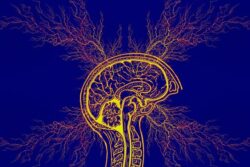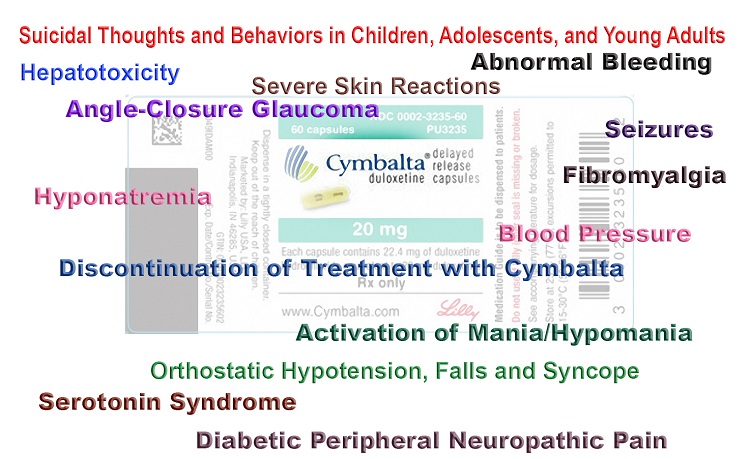What happened to me? Why did it feel as if a bomb had exploded within my body and mind? Why did I go from doing CrossFit to being unable to walk a block? Why did I lose my memory and reading comprehension? Why was I so anxious and scared? Why were my tendons so weak and sore? Why did I suddenly lose my energy, endurance and flexibility?
I knew the short answer to those questions. I had suffered from an adverse reaction to ciprofloxacin, a fluoroquinolone antibiotic, and I had gone through fluoroquinolone toxicity syndrome—a multi-symptom, “mysterious” illness that involves damage to connective tissue (tendons, ligaments, cartilage, fascia, etc.) throughout the body, damage to the nervous systems (central, peripheral and autonomic), and more. Even though I knew why I was sick, I was still left wondering, what does fluoroquinolone toxicity mean? How do fluoroquinolones damage tendons, muscles, cartilage and nerves? What, exactly, is fluoroquinolone toxicity? What happened in my body?
No doctors that I consulted were able to give me any answers to those questions, so I went digging around myself. Here are some hypotheses for the mechanisms by which fluoroquinolones cause nervous system and musculoskeletal damage that manifests as multi-symptom, often chronic, illness.
Mitochondrial Toxicity
Is fluoroquinolone toxicity syndrome a result of mitochondrial damage? This hypothesis has the most evidence to support it. The FDA noted, in their April 27, 2013 Pharmacovigilance Review, “Disabling Peripheral Neuropathy Associated with Systemic Fluoroquinolone Exposure,” that:
“Ciprofloxacin has been found to affect mammalian topoisomerase II, especially in mitochondria. In vitro studies in drug-treated mammalian cells found that nalidixic acid and ciprofloxacin cause a loss of motichondrial DNA (mtDNA), resulting in a decrease of mitochondrial respiration and an arrest in cell growth. Further analysis found protein-linked double-stranded DNA breaks in the mtDNA from ciprofloxacin-treated cells, suggesting that ciprofloxacin was targeting topoisomerase II activity in the mitochondria.”
It is also noted in an article in Science Translational Medicine entitled “Bactericidal Antibiotics Induce Mitochondrial Dysfunction and Oxidative Damage in Mammalian Cells” that fluoroquinolones, and other bactericidal antibiotics, “damage mammalian tissues by triggering mitochondrial release of reactive oxygen species (ROS).” And that “increases in ROS led to DNA, protein, and lipid damage in vitro.”
Mitochondrial damage, and the vicious cycle of damaged mitochondria creating oxidative stress (another name for reactive oxygen species/ROS), which leads to more mitochondrial damage, which leads to more oxidative stress, and so on, and so on, can lead to multi-symptom, chronic illness. It is noted by Doctors Bruce H. Cohen, MD and Deborah R. Gold, MD, in Mitochondrial Cytopathy in Adults: What we Know So Far, that:
“A problem that has vexed the study of mitochondrial diseases ever since the first reported case (in 1962) is that their manifestations are remarkably diverse. Although the underlying characteristic of all of them is lack of adequate energy to meet cellular needs, they vary considerably from disease to disease and from case to case in their effects on different organ systems, age at onset, and rate of progression, even within families whose members have identical genetic mutations. No symptom is pathognomonic, and no single organ system is universally affected. Although a few syndromes are well-described, any combination of organ dysfunctions may occur.”
Doctors Cohen and Gold go on to say that:
“symptoms (of mitochondrial damage) such as fatigue, muscle pain, shortness of breath, and abdominal pain can easily be mistaken for collagen vascular disease, chronic fatigue syndrome, fibromyalgia, or psychosomatic illness.”
Mitochondrial dysfunction, and ROS overproduction (aka, oxidative stress), are associated with many chronic diseases including Parkinson’s, Alzheimer’s, ALS, autoimmune diseases, cancer, fibromyalgia, chronic fatigue syndrome, autism and more.
Fluoroquinolone toxicity symptoms resemble those of autoimmune diseases, neurodegenerative diseases, and mysterious diseases. On many levels, it makes sense that fluoroquinolone toxicity syndrome is a disease of mitochondrial damage and ensuing oxidative stress. Mitochondrial damage and oxidative stress are almost certainly part of the fluoroquinolone toxicity puzzle.
Recommended reading:
- Science Translational Medicine, “Bactericidal Antibiotics Induce Mitochondrial Dysfunction and Oxidative Damage in Mammalian Cells”
- Journal of Young Pharmacists, “Oxidative Stress Induced by Fluoroquinolones on Treatment for Complicated Urinary Tract Infections in Indian Patients”
- Molecular Pharmacology, “Delayed Cytotocicity and Cleavage of Mitochondrial DNA in Ciprofloxacin Treated Mammalian Cells”
Neurotransmitter Malfunctions in Fluoroquinolone Toxicity
The central nervous system (CNS) symptoms of fluoroquinolone toxicity include depression, anxiety, psychosis, paranoia, severe insomnia, paraesthesia, tinnitus, hypersensitivity to light and sound, tremors and suicidal ideation and tendencies. Many of the CNS symptoms of fluoroquinolone toxicity can be attributed to the effects of fluoroquinolones on GABA receptors. Fluoroquinolones “are known to non-competitively inhibit the activity of the neurotransmitter, GABA, thus decreasing the activation threshold needed for that neuron to generate an impulse.” (source) Inhibition of GABA-A receptors, as well as activation of NMDA receptors, can lead to the many severe adverse effects of fluoroquinolones on the central nervous system.
Basically, fluoroquinolones do the same thing to GABA neurotransmitters as a protracted benzodiazepine withdrawal. It is noted in “Benzodiazepine tolerance, dependency, and withdrawal syndromes and interactions with fluoroquinolone antimicrobials” that:
“Chronic use of benzodiazepines causes compensatory adaptions which cause GABA receptors to become less sensitive to GABA. On discontinuation of benzodiazepines, withdrawal symptoms typically develop which may persist for weeks or months. Antagonism of the GABA-A receptor is believed to be responsible for the CNS toxicity of fluoroquinolones affecting 1–4% of patients treated. Fluoroquinolones have also been found to inhibit benzodiazepine receptor binding. The results of this small study seem to confirm that adverse reactions to fluoroquinolones occur more frequently in the benzodiazepine-dependent population than the 1–4% seen in the general public and may be severe.”
Those who have gone through benzodiazepine withdrawal can tell you that all aspects of one’s body are affected. It is possible that neurotransmitter dysfunction is at the root of all fluoroquinolone toxicity symptoms—though I strongly suspect that all of the potential theories that I mention in this post work in tandem.
Recommended reading:
- Toxicology Mechanisms and Methods, “Ciprofloxacin-induced neurotoxicity: evaluation of possible underlying mechanisms.”
- British Journal of Clinical Pharmacology, “Neurotoxic effects associated with antibiotic use: management considerations”
- Pharmacology Weekly, “What is the mechanism by which the fluoroquinolone antibiotics (e.g., ciprofloxacin, gemifloxacin, levofloxacin, moxifloxacin) can increase a patient’s risk for developing a seizure or worsen epilepsy?”
Magnesium Deficiency
Fluoroquinolones deplete intracellular magnesium. Magnesium is necessary for more than 300 enzymatic reactions, it is vital for the synthesis of vitamins, and magnesium depletion can lead to many symptoms of fluoroquinolone toxicity and other chronic diseases. Many people suffering from fluoroquinolone toxicity are helped by supplementing magnesium (in various forms). Studies have indicated that the binding of quinolones to DNA is mediated by magnesium.
The hypothesis that fluoroquinolones deplete intracellular magnesium is well described in the article, “Fluoroquinolone antibiotics and type 2 diabetes mellitus:”
“Fluoroquinolones are broad-spectrum antibiotics derived from nalidixic acid that inhibit bacterial topoisomerases. Although very effective therapeutically, fluoroquinolones have been linked with serious side effects such as tendinopathy, peripheral neuropathy, retinopathy, renal failure, hypertension, and seizures. These effects can be rationalized as resulting from a drug-induced magnesium deficiency, and according to the hypothesis it is not coincidental that they resemble the complications resulting from type 2 and gestational diabetes. There has, moreover, been a history of dysglycemia associated with certain fluoroquinolone antibiotics. Gatifloxacin was withdrawn from clinical use after reports of drug-induced hyperglycemia and other fluoroquinolones have been reported to interfere with glucose homeostasis.”
“The precise mechanism by which fluoroquinolones might induce intracellular magnesium deficiency is unclear. It may involve the metal-chelating properties of the 3-carboxyquinolone substructure that is common to all fluoroquinolone antibiotics and the fact that the 6-fluoro substituent on the pharmacophore gives rise to sufficient lipophilicity that the drugs can dissolve in and penetrate cell membranes. It has been suggested that intracellular fluoroquinolones may exist almost exclusively as the magnesium complex. Diffusion or active transport of such a complex into the extracellular environment would lead to depletion of intracellular magnesium – a process that may be stoichiometric or catalytic and would be only very slowly reversible, if at all. Thus, the effects of fluoroquinolones on intracellular magnesium levels might be considered to be almost cumulative (and it is noteworthy that the side-effects of fluoroquinolone therapy may manifest or persist many months after treatment). Alternatively, it is perhaps possible that fluoroquinolones could affect magnesium metabolism by disruption of renal reabsorption of this electrolyte.”
Recommended reading:
- Medical Hypotheses, “Fluoroquinolone antibiotics and type 2 diabetes mellitus”
- Natural News, “Magnesium Helps Heal Cipro Damage”
- Proceedings of the National Academy of Sciences of the United States, Biochemistry, “Quinolone Binding to DNA Mediated by Magnesium Ions”
Microbiome Destruction
Fluoroquinolones are powerful antibiotics that wreak havoc on the bacteria in the gut. In addition to indiscriminately killing bacteria in the gut of the person who takes a fluoroquinolone, fluoroquinolones have also been shown to induce large amounts of oxidative stress within the gut.
The importance of the microbiome for all areas of health is just now being explored. An unhealthy microbiome is associated with Parkinson’s, Alzheimer’s, depression, rheumatoid arthritis, diabetes, Crohn’s, and many other diseases. There are many who think that the root of all disease is in the gut.
Destruction of vital bacteria, and the induction of oxidative stress within the gut, could be responsible for the havoc wreaked on the health and well-being of those who take fluoroquinolones.
Recommended reading:
- Antimicrobial Agents and Chemotherapy, “The Fluoroquinolone Levofloxacin Triggers the Transcriptional Activation of Iron Transport Genes That Contribute to Cell Death in Streptococcus pneumonia”
- National Institutes of Health, “Human Microbiome Project”
- Scientific American, “Think Twice: How the Gut’s ‘Second Brain’ Influences Mood and Well-Being”
Epigenetic Changes
Fluoroquinolones are topoisomerase interrupters. The mechanism for Cipro/ciprofloxacin, and all other fluoroquinolone antibiotics is:
“The bactericidal action of ciprofloxacin results from inhibition of the enzymes topoisomerase II (DNA gyrase) and topoisomerase IV (both Type II topoisomerases), which are required for bacterial DNA replication, transcription, repair, and recombination.”
Topoisomerases are enzymes that are necessary for DNA and RNA transcription. Topoisomerase interrupting drugs have been found to profoundly affect gene expression. It may be possible that fluoroquinolones trigger the expression of dormant genes. So, for example, those who have a predisposition toward an autoimmune disease may bring on the autoimmune disease with the fluoroquinolone. Anecdotally, it seems as if any existing weakness a person has is exacerbated by fluoroquinolones.
It is hypothesized in “Epigenetic side-effects of common pharmaceuticals: A potential new field in medicine and pharmacology,” that all adverse reactions to fluoroquinolones are due to epigenetic mechanisms:
“The quinolones are a family of broad-spectrum antibiotics. They inhibit the bacterial DNA gyrase or the topoisomerase IV enzyme, thereby inhibiting DNA replication and transcription. Eukaryotic cells do not contain DNA gyrase or topoisomerase IV, so it has been assumed that quinolones and fluoroquinolones have no effect on human cells, but they have been shown to inhibit eukaryotic DNA polymerase alpha and beta, and terminal deoxynucleotidyl transferase, affect cell cycle progression and function of lymphocytes in vitro, and cause other genotoxic effects. These agents have been associated with a diverse array of side-effects including hypoglycemia, hyperglycemia, dysglycemia, QTc prolongation, torsades des pointes, seizures, phototoxicity, tendon rupture, and pseudomembranous colitis. Cases of persistent neuropathy resulting in paresthesias, hypoaesthesias, dysesthesias, and weakness are quite common. Even more common are ruptures of the shoulder, hand, Achilles, or other tendons that require surgical repair or result in prolonged disability. Interestingly, extensive changes in gene expression were found in articular cartilage of rats receiving the quinolone antibacterial agent ofloxacin, suggesting a potential epigenetic mechanism for the arthropathy caused by these agents. It has also been documented that the incidence of hepatic and dysrhythmic cardiovascular events following use of fluoroquinolones is increased compared to controls, suggesting the possibility of persistent gene expression changes in the liver and heart.”
Fluoroquinolones have been found to deplete mitochondrial DNA, and mitochondria have been found to affect gene expression.
It is possible that fluoroquinolones are profoundly changing gene expression, and that the adverse effects of fluoroquinolones are a result of altered gene expression. Fluoroquinolones are, after all, topoisomerase interrupters.
Recommended reading:
- Medical Hypotheses, “Epigenetic side-effects of common pharmaceuticals: A potential new field in medicine and pharmacology”
- Mutation Research, “Ciprofloxacin: Mammalian DNA Topoisomerase Type II Poison In Vivo”
- Nature, “Topoisomerases facilitate transcription of long genes linked to autism”
Thyroid Harm
The harm that fluoroquinolones do to the thyroid is described well in “Fluoroquinolone Antibiotics and Thyroid Problems: Is there a Connection?” on Hormones Matter. A more in-depth look at fluoroquinolone induced thyroid problems can be found on FluoroquinoloneThyroid.com.
Please don’t interpret the brevity of this section as a reason to discount it as a possible explanation for fluoroquinolone toxicity syndrome. Thyroid dysfunction can wreak havoc on a person’s health and the deleterious effects of fluoroquinolones on the thyroid are a potential explanation for the multi-symptom, chronic illness of fluoroquinolone toxicity. The articles by JMR on both Hormones Matter and fluoroquinolonethyroid.com explore the relationship thoroughly.
All of the source links in “Fluoroquinolone Antibiotics and Thyroid Problems: Is there a Connection?” on Hormones Matter are recommended.
Post-hepatic Syndrome / Liver Damage
Do fluoroquinolones form poisonous acyl glucuronides that lead to post-hepatic syndrome?
I think that it’s a definite possibility, but I also think that I’m not qualified or able to form a coherent and correct explanation of this hypothesis. Please ask a biochemist to explain the following articles to you:
- Drug Metabolism and Disposition, “Acyl Glucuronidation of Fluoroquinolone Antibiotics by the UDP-Glucuronosyltransferase 1A Subfaminly in the Human Liver Microsomes”.
- Current Drug Metabolism, “Editorial [Hot Topic:Acyl Glucuronides: Mechanistic Role in Drug Toxicity? (Guest Editor: Urs A. Boelsterli)]”
- BMC Public Health, “Adverse effects of the antimalaria drug, mefloquine: due to primary liver damage with secondary thyroid involvement?” (Note that mefloquine and fluoroquinolones are cousin drugs – they’re both quinine analogues.)
This is a long, and fairly complex, post. Yet I am leaving out many possible explanations for the causes of fluoroquinolone toxicity. Not even touched on are the possibilities that fluoroquinolone toxicity is a lysosomal disorder, autoimmune disease, fluoride overdose, “leaky gut,” histamine response, mast cell activation, serum sickness, and many other possibilities. I suspect that fluoroquinolone toxicity is a combination of all of the things mentioned above, and in this paragraph, and that there are multiple interactions between all of the biological systems. Fluoroquinolone toxicity is a systemic illness and all bodily systems work together.
Though fluoroquinolones can throw a wrench in our biochemistry, the multiple systems that work together to make us sick can also work together to make us well. We have amazing healing mechanisms that are less-understood than the mechanisms that make us sick (and those are pitifully poorly understood). Our bodies are a complex and wondrous web. All of our bodily systems work together perfectly most of the time, and they strive to return to health in every moment of life.
Though there are hundreds of articles about the deleterious effects of fluoroquinolones, the question – What is fluoroquinolone toxicity? – remains unanswered. Any one of the possibilities mentioned above is complex. Put them all together and, well, comprehension becomes close to impossible. Luckily, comprehension isn’t required for healing. But it would be very, very, very nice if some efforts toward understanding adverse reactions to fluoroquinolones were being made.
Post script: The first post I ever wrote on my site about fluoroquinolone toxicity (www.floxiehope.com) was a post like this one, also entitled, “What is Fluoroquinolone Toxicity?” You can read it HERE. The 2015 post above is much more thoughtful, well-researched and, in almost every way, it is better. But the 2013 post on Floxie Hope is interesting in its own right. It went over what it feels like to go through fluoroquinolone toxicity, and it was written from the perspective of a recent victim of fluoroquinolones, not the perspective of someone who has spent hundreds of hours researching fluoroquinolones. The patient perspective, and noting what fluoroquinolone toxicity feels like is valuable, though I think that the connections made in this 2015 post are more accurate.
Information about Fluoroquinolone Toxicity
Information about the author, and adverse reactions to fluoroquinolone antibiotics (Cipro/ciprofloxacin, Levaquin/levofloxacin, Avelox/moxifloxacin and Floxin/ofloxacin) can be found on Lisa Bloomquist’s site, www.floxiehope.com.
Participate in Research
Hormones MatterTM is conducting research on the side effects and adverse events associated with the fluoroquinolone antibiotics, Cipro, Levaquin, Avelox and others: The Fluoroquinolone Antibiotics Side Effects Study. The study is anonymous, takes 20-30 minutes to complete and is open to anyone who has used a fluoroquinolone antibiotic. Please complete the study and help us understand the scope of fluoroquinolone reactions.
Hormones MatterTM conducts other crowdsourced surveys on medication reactions. To take one of our other surveys, click here.
To sign up for our newsletter and receive weekly updates on the latest research news, click here.
What Else Can I Do To Help?
Hormones MatterTM is completely unfunded at this juncture and we rely entirely on crowdsourcing and volunteers to conduct the research and produce quality health education materials for the public. If you’d like help us improve healthcare with better data, get involved. Become an advocate, spread the word about our site, our research and our mission. Suggest a study. Share a study. Join our team. Write for us. Partner with us. Help us grow.
To support Hormones Matter and our research projects – Crowdfund Us.












Once you take these poisons, the person you used to be is gone forever. The real me died on Sept. 25, 2019.
These doctors are getting away with murder. All for profit and power. May they all rot in hell.
They gave me cipro for Lyme. The damage it did was much worse to overcome and to deal with then the damage Lyme disease was causing.
I was given 8 months of cipro.. i thought i aged to become 150 years.. I AM very sick and have been for the last 4 years.. no doctor will help.. i started taking put vit c, magnesium, and amino 10,000 they have helped.. i couldn;t even get out of bed for years with out ending up on fire and not able to move for weeks, needed help to move arms and legs and sometimes it would get into my diyafram, my bone marrow stopped making blood platelets also, and the hair on my legs fell out.. and got a rash all over my body.. and my gut is so bad.. :*( i need help but don’t klnow where to go, i am tired of doctors treating me like its all in my head..
Cipro insert
https://www.accessdata.fda.gov/drugsatfda_docs/label/2009/019537s073,020780s030lbl.pdf
At 50 was diagnosed with MCTD Lupus, Fibromyalgia, T2 Diabetes. Have had 5 laser eye surgeries. Currently, undergoing Benlysta infusions. Have terrible gut Inflammation and have undergone shoulder surgery and severed tendon. Sleep deprived and on CPAP machine. 🙁
This is the first time that I see and understand the Benzo, (that I was given for sleep), and Fluoroquinolone connection and the additional pain and suffering because of having them one year after the other. Shed a few tears, but truth is, oh, so healing. I was eventually gaslighted and court ordered to a mental health facility. Just the idea that this could happen because of the carelessness and secrecy of a physician is unexceptable. The psych doctor said there is nothing wrong with you; your civil rights are being violated – The next time I was floxed, I learned of tendon tears but had other symptoms at the time that when I look back I see it correlates with Cipro and side effects. So for me, your work is a comfort, but I know that it has helped countless people not to suffer in the dark as they go through it.Thank you, your time has been well spent.
Hello everyone…..thank you for this site.
I have taken cipro 3 or more times and had a complete breakdown that included 6 weeks of not sleeping, severe HBP and anxiety…..that resulted in my going to NYU Langone clinic for a brain scan…NORMAL. This occurred in 2013 after taking 500 mg cipro 2x /day for a week for a uti. I also took Cipro 2x in 2008, 3 months apart. In addition I had Lyme and Babesia in 2000…..which resulted in hallucinating on LARIUM, which was prescribed for the BABESIA, which is like Malaria. My doctor at the time was holistic and warned that there could be that kind of reaction. I have since read somewhere that LARIUM is also related in some way to the CIPRO -family of drugs and is a red flag warning that I never should have been given Cipro. I also have a history of Hashimoto Thyroid and Fibromyalgia. I have been through hell the past 3 years. Will elaborate another time.
Here’s what has me so upset…..my dad….who died in 2008…..was on prednisone and other meds…he was a strong and happy man and a wonderful musician….while he was on the prednisone!!!!!!!! he was put on Cipro……He kept saying afterward that “he was going to die” , we kept reassuring him he would be fine. He kept saying his ear was bothering him and the sound was driving him to be very upset and after taking Cipro he was never able to sleep well again, he became agitated and highly anxious. He died 3 months after taking Cipro. We had no idea what had happened and only put the pieces together recently. I am still shocked that I am going through what he went through. Even more unbelievable ….my 89 year old mom was given levaquin 2 1/2 months ago……I had not totally realized the relationship with the fluoride family of meds….I’m keeping an eye on her…..see was on co q 10 and magnesium and probiotic (just coinsidentally….not recommended by doctor!). My biggest personal issue is very bad short term memory, unrelenting left side neck pain, floaters and eye stuff(can deal with it)…..but the neck and the full body tightness and stiffness is upsetting. The toe buzzing and feeling like falling forward and pre seizure feeling is much improved. Today I had feeling on scalp like poked with needle. I’m upset that recently I Have been feeling some symptoms return. I am 65 years old and do have a stressful life. I take mag, fish oil, co q 10. Any comments would be appreciated. thank you.
Also during the 6 weeks after taking cipro the last time I lost 18 pounds, down from 140 pounds….and I also had many, many symptoms such as feeling like prolapsed uterus and very sore coccyx (went to pt 10 times) and at least 8 different doctors. I was convinced symptoms were related to something thyroid related or lyme related. But was totally confused and also felt like I was going to die. Is there anyone who knows what supplements have helped. I do have a history of adverse affects from MSG so wonder about taking glutathione?
Lisa
Thanks you for such a detailed and research-based article! When I interviewed Dr Carolyn Dean on The Anxiety Summit she discussed fluoroquinolone toxicity and the impacts on magnesium. I had no idea the impacts are so far-reaching. I work with anxious women and I’m very familiar with the benzodiazepines and the terrible withdrawal effects.
I would love to hear what you have found/heard/used for anxiety in the way of using targeted individual amino acids GABA and tryptophan – and if they help with the anxiety while the person is healing?
I would love to share this with my community (and the world!) and invite you to speak on one of my upcoming Anxiety Summits?
Hi Trudy,
Thank you so much for your interest in how fluoroquinolones affect GABA and magnesium! I’d love to talk with you about fluoroquinolones, and I’d also love to spread the word about how fluoroquinolones can cause anxiety. Please email me at floxiehope@gmail.com. Thanks so much!
Lisa
Great article!
Thank you Carol and Bronwen! I encourage both of you to look at the documents, “Responsible Use of Fluoroquinolone Antibiotics” and “A Public Policy Plan to Utilize the Pharmaceutical Industry and Pharmacogenomics to Reduce Serious Adverse Drug Reactions, Develop Personalized and Individualized Therapy, and Provide a Functional Map of the Human Genome.” Both can be accessed through http://fluoroquinolonethyroid.com/pdfs/. I think that both are also excellent things to send to doctors, scientists and lawmakers.
Fantastic compilation of research. Thank you on behalf of all of us who have been “floxed” and are struggling to understand why our bodies are crashing. It seems this page should be bookmarked as a resource to present to front line healthcare workers or scientists trying to understand how their area of research fits into the bigger picture.
Especially for those of us whose damaged eyes and brains have a hard time reading, comprehending, and remembering scientific articles well enough to share their pertinent info in our efforts to get emotional support for (or at least acknowledgement of) what has happened to us, this is a great post that nicely sums up theories of how these drugs can ruin lives yet cause no abnormal test results–at least none that are immediately apparent. Acknowledgement is only the first step, however; this article also shows how badly we need research, and besides the U.S. government (who are paying billions in disability claims because of these drugs anyway), it seems pharmaceutical companies are the only ones who have the capital to perform the appropriate research. If this is the case, it seems the FDA should be able to somehow force them to perform this research, even if the makers are allowed to escape legal liability as a result. We aren’t getting tort relief anyway, and although both would be nice, I think most of us would rather get a cure than a settlement. I want my life back!
Thanks for that, Carol. I am a victim of this as a result of ten years of being treated with Levaquin for sinusitis and bronchitis. I just struggled through Lisa’s post as I am desperate for information, but it was difficult. Until I read about this a few days ago on Trudy Scott’s Facebook page, I had no idea. I always got swelling around my eyes and some itchy hives from the Levaquin, the last time was so bad I refused to take it again. Now this Info comes to.light and its overwhelming. All this time, I thought I was suffering from damage caused by long term use of antidepressants. Are there any answers?
Also, I am 59 and had to retire early due to these same, multiple disabling ailments and, no, have to live in vey small pension and social security disability. I feel totally betrayed by the medical and pharmaceutical communities. Feel like 20-30 years of my lifeboats been stolen.
I agree what will money do I want to be able to jog again and not worry that I will die from coronary embolism and or coronary rupture. God bless you and may he heal all of us.